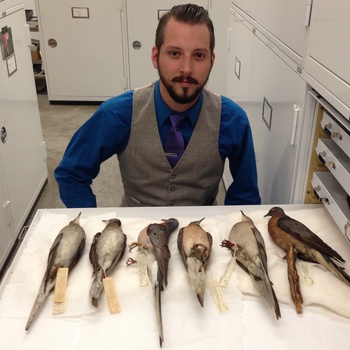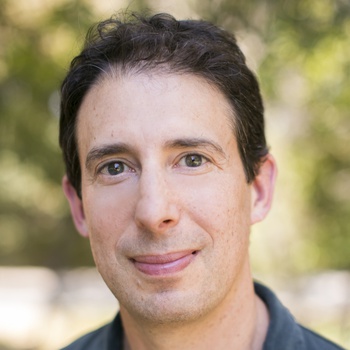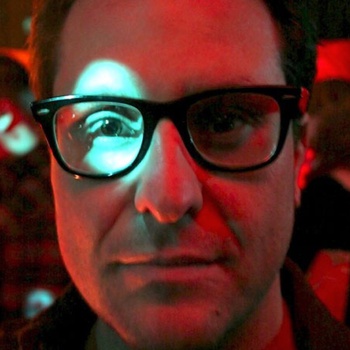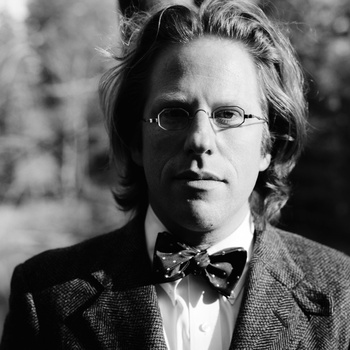Ideology in our Genes: The Biological Basis for Political Traits
Rose McDermott

July 19, 02016
While traditionally social factors have been considered to have primary influence on political behaviors and preferences, more recent research shows that there's also a strong heritable component to ideological attitudes. Rose McDermott, professor of International Relations at Brown University and a 02015-16 Stanford CASBS fellow, discussed her research on the influence of genetic contributions to political and social behavior.
McDermott studies the biological influences which interact with environmental factors to shape ideology across the political spectrum in cultures around the world. McDermott has described her work as intended to offer an interdisciplinary approach to the interaction of psychological processes and political outcomes. Her research has included conducting embedded experiments on attitudes toward gender equality in numerous countries including Lebanon, Jordan, Uganda, Indonesia, Mongolia and India. She is the author of Political Psychology in International Relations and co-editor of Man Is by Nature a Political Animal. She was inducted into the American Academy of Arts and Sciences in 02013.
Dr. Rose McDermott is the David and Mariana Fisher University Professor of International Relations at Brown University and a Fellow in the American Academy of Arts and Sciences. She received her Ph.D.(Political Science) and M.A. (Experimental Social Psychology) from Stanford University and has taught at Cornell, UCSB and Harvard. She has held numerous fellowships, including the Radcliffe Institute for Advanced Study, the Olin Institute for Strategic Studies and the Women and Public Policy Program, all at Harvard University. She is a two-time fellow at the Stanford Center for Advanced Studies in the Behavioral Sciences.
Recent research shows that genetics as well as environment contribute to our political opinions. Social and political psychologist Rose McDermott of Brown Univiersity, a Stanford CASBS fellow, explains the biological foundations of ideology, how conservative and liberals react to each other's scent, and much more. From July 02016.
Upcoming Talks
Videos

Johanna Hoffman
Speculative Futures: Design Approaches to Foster Resilience and Co-create the Cities We Need
October 12, 02022

Creon Levit
Space Debris and The Kessler Syndrome: A Possible Future Trapped on Earth
April 26, 02022

Brittany Cox
Horological Heritage: Generating bird song, magic, and music through mechanism
August 20, 02019

Elizabeth Lonsdorf
Growing Up Ape: The Long-term Science of Studying Our Closest Living Relatives
April 30, 02019

James Holland Jones
The Science of Climate Fiction: Can Stories Lead to Social Action?
January 29, 02019

Kevin Kelly, Stewart Brand, Alexander Rose
Siberia: A Journey to the Mammoth Steppe
January 22, 02019

Caroline Winterer
The Art and Science of Deep Time:
Conceiving the Inconceivable in the 19th Century
September 4, 02018

Esther Dyson
The Short Now: What Addiction, Day Trading, and Most of Society’s Ills Have in Common
July 17, 02018

Hannu Rajaniemi
The Spirit Singularity: Science and the Afterlife at the Turn of the 20th Century
July 10, 02018

Shahzeen Attari
Facts, Feelings and Stories: How to Motivate Action on Climate Change
June 26, 02018

Renée DiResta
Disinformation Technology: How Online Propaganda Campaigns Are Influencing Us
April 10, 02018

Scott Kildall
Art Thinking + Technology: A Personal Journey of Expanding Space and Time
August 15, 02017

Miles Traer
The Geological Reveal: How the Rock Record Shows Our Relationship to the Natural World
June 27, 02017

Andrew Lakoff
How We Became “Unprepared”:
Imagining Catastrophe from the Cold War to Bird Flu
May 30, 02017

Jennifer Petersen
Why Freedom of Speech Is More Than Speech:
Expressions in Media and Code
April 18, 02017

Tara Behrend
The Psychology of Surveillance:
How Being Watched Changes Our Behavior
February 28, 02017

Ben Novak
The Next Flight of the Passenger Pigeon: Engineering Nature's Engineers
September 27, 02016









































































